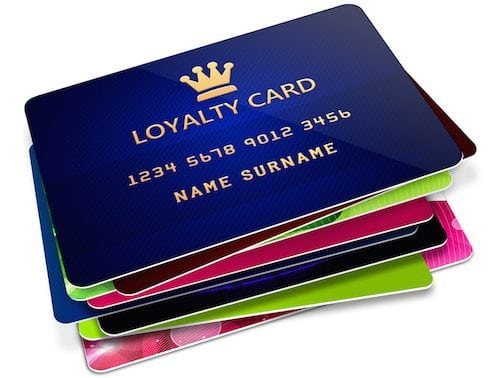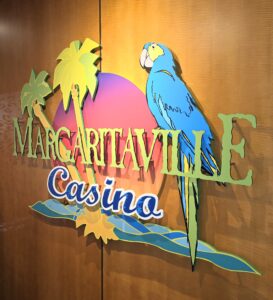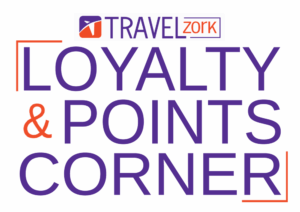This is a guest contribution by my good friend Mike from frequentflyermiles101.com, a site for those just learning the points game. One of the smartest miles+points people that I know, Mike is also obsessed with getting amazing value on luxury experiences.

I’m a big fan of loyalty programs. I generally belong to just about any that will have me, whether it’s a frequent flyer scheme or a punch card at a local sandwich shop. There is, however, one thing about loyalty programs that tends to aggravate me: Their name.
How Loyal Is Your Loyalty Plan?
I write a blog for those who are somewhat new to the world of hotel points and airline miles, and the first issue that I tell people to think about is this: A loyalty program does not exist to reward you for your past business. Rather, these companies are trying to influence your future purchases. And there’s nothing wrong with that. They are all corporations whose fiduciary duty is to make money for their owners. But let’s face it: American AAdvantage sounds a lot better than “American’s device to generate excess profits for its shareholders.”
Really? I Get Nothing?
No, you do get some perks for your past business. Frequent flyer miles, Mlife points or Marriott Rewards are all assets that you earn whenever you spend money with the company. And most travel-related vendors also offer some version of elite status, which is based on your travel or spend from the previous year. Of course, most elite benefits require more business with the firm, leading to odd situations like “elite mileage runs,” where passengers will fly just to accumulate miles. This process leads to an endless loop of spending money to maintain status just so you will have the ability to do the same the following year.
Casinos, of course, have become a master of this technique, leading to the necessity for articles like this one, which help you beat the system.
How Can I See Their Policies In Action?
The best example of the “influencing future behavior programs” is InterContinental’s (IHG) offer. You can read about the promotion here (Yes, that is a self-serving link to my blog.), but here’s the short version: IHG assigns you a series of “tasks,” such as staying a certain number of nights or paying with your IHG credit card, and give you points when you complete them, similar to the rat pulling the lever to get his pellet. The trick with the system, though, is that everyone gets a personalized offer based on your past behavior. If I only stay once or twice per year, they know that they won’t be able to get fifty nights from me. But if a few points will get me to stay a third and a fourth night, they’ve just doubled the revenue that they’ve made from me. And then, I may earn elite status and want to stay even more nights to take advantage of those benefits.
Speaking of elite status, look at what Hyatt did this year. It revamped a perfectly functional program and renamed it “World of Hyatt,” giving the various levels ridiculous names like “Discoverist” and “Globalist.” Want the best benefits? You’re going to have to work for it, even more so than under the previous program. Unlike Hilton and Marriott, where the mid-tier status has almost all of the perks of top tier, Hyatt is saving the best for its Globalists. Hyatt will be the first ones to tell you (In fact, they have, on numerous occasions.) that they’re pushing for you to transfer all of your nights to them. The most loyal customers are the most profitable, and anything that they can do to generate extra nights is going to be incremental revenue for them.
So Should I Ignore Loyalty Programs?
No, of course not. They’re giving you something for doing business with them, so there’s no reason not to take advantage of it. But don’t let the tail wag the dog. Sure, you may be getting points for dealing with your favorite travel company, but could you have gotten better value by going elsewhere?
Michael Friedman is a frequent traveler who spends more time on airplanes and in hotels than he sometimes cares to. He has accumulated over five million lifetime frequent flyer miles and takes pride in burning, rather than hoarding, them. Despite his shaky internet skills and not really understanding what Twitter does, he maintains Frequent Flyer Miles 101, a blog for those who are new to the points game or just want some basic tips. He can be followed on Twitter at @ffmiles101.
Want to do well by doing good? Michael’s site has credit card links, and all commissions are donated to charity. Thanks to his readers, he has been able to donate over $5,000 to a children’s charity over the past two years. Ordering a card through those banners will not get you tons of points but also help a child in need.
Michael is a travel enthusiast who is passionate about food and casino adventures and is very detail-oriented when it comes to travel, especially when it comes to the entire flight and airport experience. Before returning to the USA, he resided in Europe (Amsterdam and London) from 2013 to 2020. Current passion projects include TravelZork, the creation of ZorkFest (The Preeminent Consumer-Focused Travel Loyalty (Miles+Points) and Casino Loyalty Conference), and ZorkCast Podcast. In addition, Michael is passionate about the history of Las Vegas and Atlantic City, as well as baccarat, and enjoys cooking and experiencing food around the globe.












